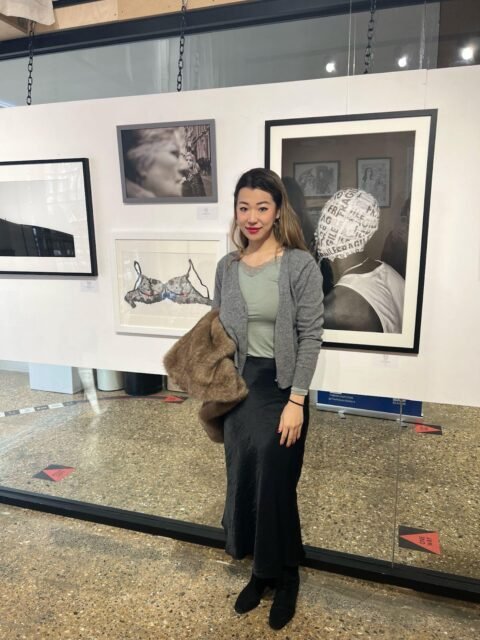Recently, a work of a flamingo with its head hidden from view was selected as a bronze winner in the AI category of the 1839 Awards for photography. The catch? The photograph wasn’t created with AI.
Miles Astray, who captured the image, purposefully entered his photograph into the Awards’ AI category to interrogate how people are lagging behind technological advancements. Upon unveiling that the work was indeed human-made, Astray’s win was disqualified. The photo, titled FLAMINGONE, was also selected by the public for the People’s Choice Award.
Shortly after, Astray published an article on his website explaining the motive behind his actions. ‘With AI-generated content remodelling the digital landscape rapidly, while sparking an ever-fiercer debate about its implications for the future of content and the creators behind it – from creatives like artists, journalists and graphic designers to employees in all sorts of industries – I entered this actual photo into the AI category of the 1839 Awards to prove that human-made content has not lost its relevance, that Mother Nature and her human interpreters can still beat the machine, and that creativity and emotion are more than just a string of digits,’ he wrote.
‘My work FLAMINGONE was the perfect candidate, because it’s a surreal and almost unimaginable shot, and yet completely natural. It is the first real photo to win an AI award,’ Astray added.
Astray also wanted to send a direct message to the jury, which included members from The New York Times, Getty Images, Phaidon Press, Centre Pompidou, Christie’s and Maddox Gallery. It seems as though the incident struck a chord with 1839 co-Founder and Director Lily Fierman. ‘We hope this will bring awareness (and a message of hope) to many photographers worried about AI,’ Fierman wrote to Astray in an email response.
Perhaps this whole thing is a coincidence – after all, photos of animals looking funky are easily likeable – but it does spark some discussions around the artist-AI relationship as things are starting to look grim for creators in Australia.
Artists were sent into panic around the news that Meta will start using Instagram and Facebook posts to train its own AI tools and could be scraping data from as far back as 2007. Unlike the EU where certain online regulations are in place for data protection, Australians will have no defence against the practice or the choice to opt out.
Starting 26 June, Meta will be taking user data from photos, posts and captions to feed its AI Creative Tools, including image generation.

Currently, it seems as if the only option to protect your data is by either making your account private, or ditching Instagram altogether – this means abandoning followings that many artists have been building on the visually-focused platform for years or even close to a decade.
Indeed, many are now flocking over to Cara, a social app for creatives, in order to flee Meta’s AI policies. Within just a week, Cara’s users grew from 40,000 to 650,000. Cara does not allow generative AI art to be shared on its platform, but it’s unclear whether the platform can offer the same level of reach and engagement for artists as Meta does. However, others, including comic book artist J Scott Campbell, have advised against jumping so quickly onto a small, untested platform, especially when Instagram is an established income stream.
Others have suggested using Glaze, a system developed by the University of Chicago, which ‘protects human artists by disrupting style mimicry’. It works by putting a coding glaze over the artworks posted, which isn’t perceptible to the human eye, but misleads AI models to see it as a drastically different style.
Looking at some reports, it appears as if the effectiveness of this is still in question, and far from a long-term solution.
Read: AI doesn’t mean human-made music is doomed. Here’s why
While we want to feel hopeful around AI and its potential as a tool or even collaborator in artistic creation, it feels as if, where the big corporations are involved, humans are already on the back foot. With one small win, AI comes back with a vengeance.




